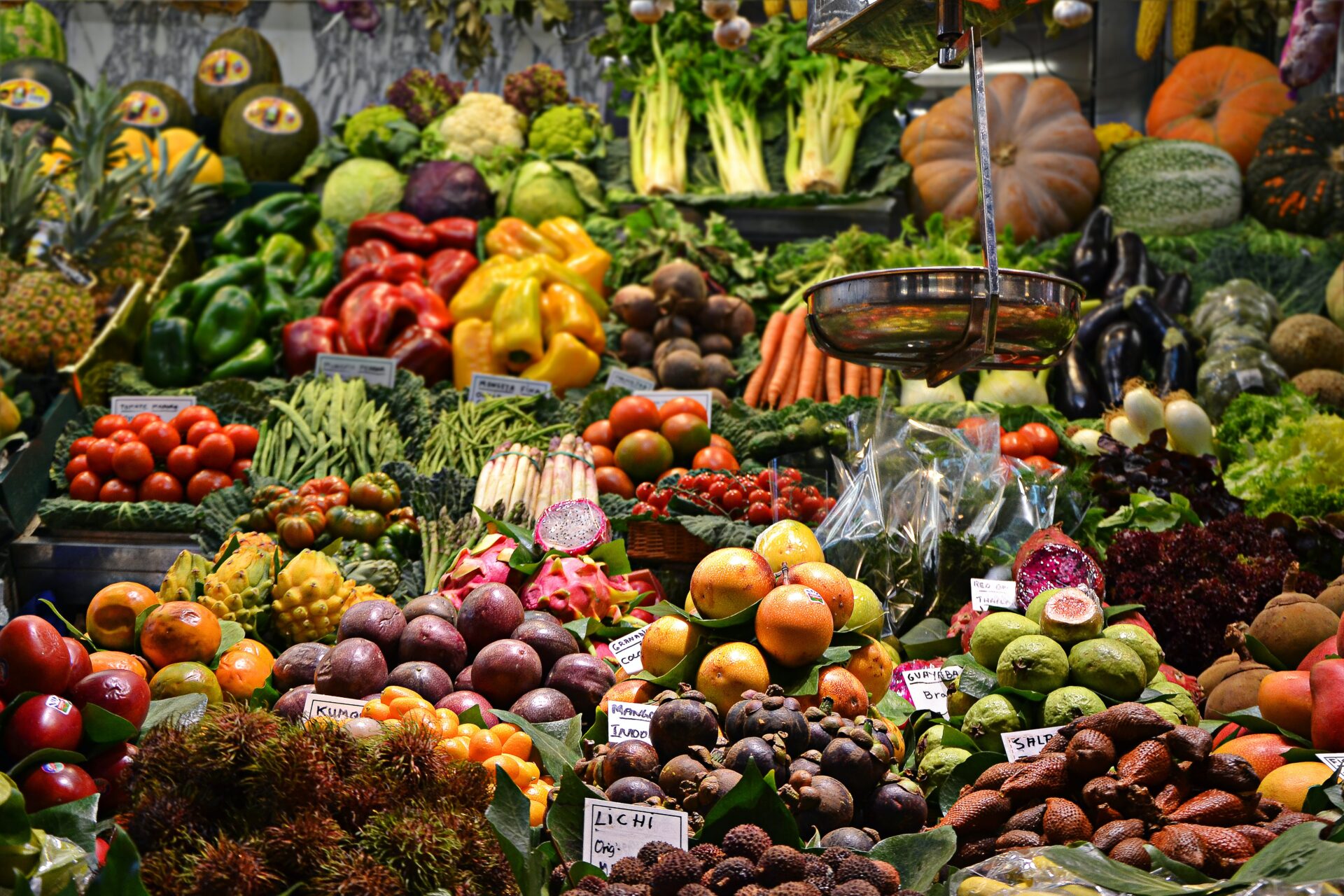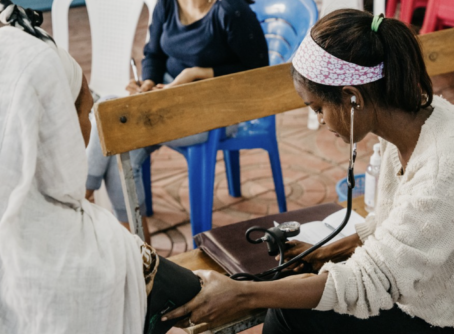
One of the most significant pieces of legislation up for debate this year is the 2023 farm bill, legislation Congress has renewed about every five years since the 1930s. Every fifth year, the previous bill is proposed, debated and passed by Congress and then signed into law by the president. The most recent farm bill, the Agriculture Improvement Act of 2018, authorizes funding through 2023, which means this year legislators will have to reauthorize agricultural subsidies, regulations on trade, energy, and research — and, significantly, food assistance programs. In 2018, nutrition programs such as the Supplemental Nutrition Assistance Program (SNAP) and The Emergency Food Assistance Program (TEFAP) comprised about 80 percent of the bill’s funding.
Contrasting motives, concerns about budget and differing ideologies about who can and should receive government assistance are causing many obstacles in renewing the farm bill in 2023. Some congressional leaders in the House have recommended adjusting these programs to include work requirements or reducing food assistance programs to pre-COVID-19 levels.
If Congress does not properly fund nutrition assistance programs or puts onerous requirements on the people who need them, the 40 million people who receive assistance may lose access to the help they depend on. This situation demonstrates the magnitude of food insecurity in the United States. In 2020, the USDA found that 10.5 percent, or 13.8 million households, were food insecure. Although this is far from the majority of the population, it is still more than one in ten households experiencing food insecurity.
The USDA defines food insecurity as “a household-level economic and social condition of limited or uncertain access to adequate food.” Food insecurity is a complex problem with many factors playing into the causes and risks, such as unemployment, lack of affordable housing, physical and mental health conditions, and systemic racism. Although all of these factors may contribute to it, the USDA measures food insecurity in the United States as the inability to acquire enough food for yourself or your family.
The Gospel tells followers of Christ that we must fight against injustice and help the needy: “Sell your possessions and give to the poor. Provide purses for yourselves that will not wear out, a treasure in heaven that will never fail, where no thief comes near and no moth destroys” (Luke 12:33). Isaiah 58:7 also tells us that true fasting is “to share your food with the hungry and to provide the poor wanderer with shelter — when you see the naked, to clothe them, and not to turn away from your own flesh and blood.” Although we are given ultimate grace through our faith in Him, we must still follow Christ’s example of serving the underserved, striving to bring heaven to earth and bearing witness to Christ. Christians have a vital role to play in combating both domestic and international food insecurity by working with civil society, especially faith-based organizations, as well as by continuing to advocate for government programs such as SNAP.
Many people around the country and globe are working to combat food insecurity, including through government benefit programs and nonprofit, nongovernmental organizations. Government assistance programs such as SNAP, the Special Supplemental Nutrition Program for Women, Infants, and Children (WIC), and the nationwide school lunch program have been proven to increase food security among households experiencing food insecurity. SNAP supplies low-income households with funds to purchase food items at authorized retailers, while WIC specifically benefits low-income women and families with children under the age of five. Furthermore, WIC provides participants with many other health resources, such as health screenings, nutrition counseling and immunization referrals.
Given that these programs help millions of individuals and families stay out of food insecurity each year, it is vital that the government continue funding them. The government has a unique role in ending food insecurity that nonprofits and well-intentioned individuals cannot fulfill. Although nonprofits have a unique ability to serve people experiencing food insecurity as well, the government has the funding and infrastructure to provide assistance to people across the country, regardless of location or population density.
Christians, in turn, should advocate for the continued use of these benefits and work to reduce the stigma around participating in these programs. Christians can support people who receive SNAP or WIC benefits by building them up and not looking down on those who need additional government support. Likewise, Christians who receive these benefits should not feel ashamed for needing additional support.
Public Justice Perspective
On the other side of the same coin, Christians can combat food insecurity in the United States by becoming directly involved with nonprofits and faith-based organizations that work against food insecurity. The Center for Public Justice’s Guideline on Welfare spells out this principle: “The call to be a ‘neighbor’ — to help those who are in need — is addressed to all people and all institutions. Receiving assistance should enable those in need to reach or return to self-sufficiency and be in a position to help others.” This guideline states that public assistance should be available to those who need it and the government must work collaboratively with civil society institutions to provide the most care for as many people as possible. Just as the government has a unique role to play in ending food insecurity that other institutions cannot fulfill, civil society organizations have their own role in combating food insecurity that the government cannot fill. Civil society can provide specific and localized services rather than the generalized support the government provides, as well as give people the resources they need to return to self-sufficiency.
Feeding America, for example, has a nationwide network of food banks aimed at supplying additional food to families who need it, including mobile pantries for people who may not have adequate transportation or the ability to go to the grocery store or food banks themselves. The organization also offers SNAP application assistance, which provides information about SNAP eligibility and support throughout the application process. Young Christians can and should become involved with organizations such as Feeding America or local food banks by volunteering their time to help them run and serve as many people as possible.
Bread for the World is a Christian nonprofit that seeks to address food insecurity at the policy level. The organization equips Christians to advocate directly to Congress to enact policies to end food insecurity, such as the Global Food Security Act, and to mobilize their churches in action, advocacy and prayer to end food insecurity at home and across the world.
A Local Impact
Although federal aid such as SNAP and WIC, along with the national nonprofit organizations previously mentioned, help many individuals and families out of food insecurity, local organizations make just as important an impact on our communities. Community members can easily become involved with local organizations and make a difference near their own homes.
Mission Waco is a nonprofit local to Waco, Texas working to eliminate poverty in its “own backyard.” Although the Mission has many programs that help the local community, one of the most significant is its Jubilee Food Market. This market is a small grocery store created to fill a gap in access to food in an area of Waco that was formerly a food desert. Not only does this store provide access to healthy, nutritious food to individuals and families, it helps the local economy by stocking mostly locally grown food and products. Organizations such as Mission Waco exemplify Jesus’ call for Christians to serve and love the marginalized and needy.
Ultimately, we must follow Jesus’ greatest commandment to us: “Love each other as I have loved you” (John 15:12). Christians should care about people experiencing food insecurity because Jesus commands us to love each other as we love ourselves and as He loves us. Though there are no simple solutions, Christians can love our neighbors by supporting government and civil society efforts to combat food insecurity in the United States and around the globe.





